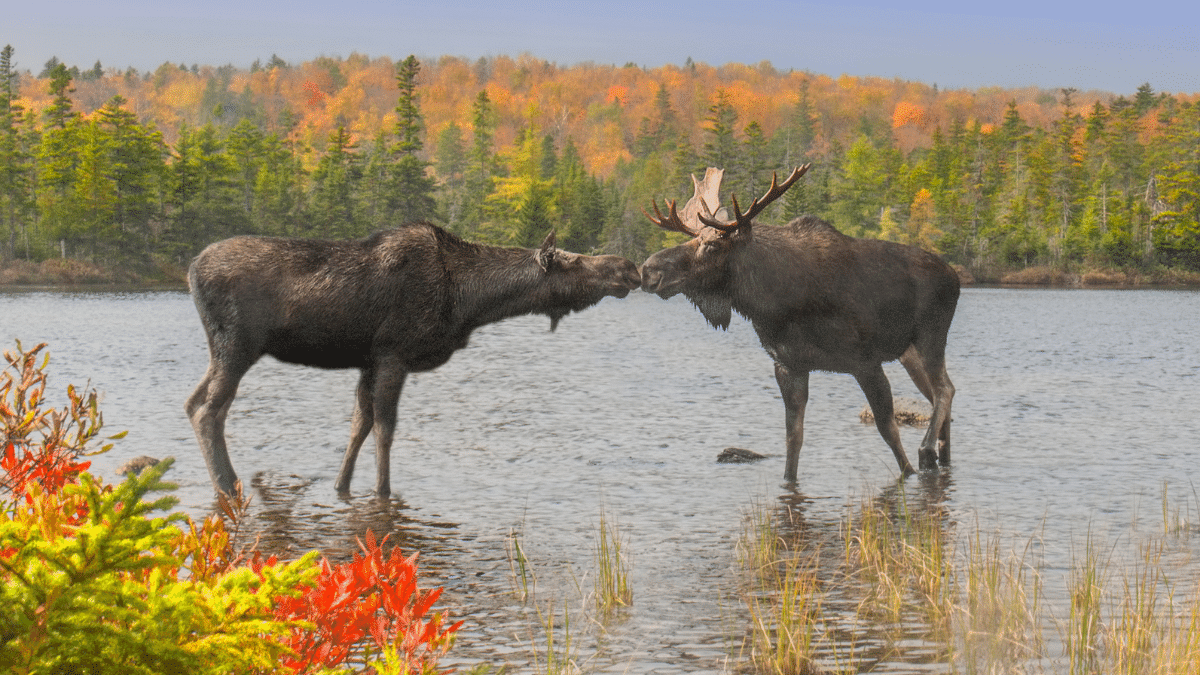There are few things more iconically Canadian than the moose. This majestic creature is a symbol of our Great White North and a keystone species of our boreal ecosystem.
Moose may soon disappear completely from some parts of Manitoba, where the population has dropped by as much as 57 percent.
The numbers aren’t much better for the province as a whole. The best estimate from wildlife experts is that less than 20,000 moose currently roam our woods. That’s down from around 45,000 in the 1960s.
CPAWS Manitoba has developed a series of recommendations and potential solutions to the challenges of ensuring sustainable moose populations across the Manitoba landscape.
Take Action
Save Our Moose
Moose may soon disappear completely from some parts of Manitoba, where the population has dropped by as much as 57 percent. Tell Manitoba's Premier to Save Our Moose.
Why Are Manitoba’s Moose In Trouble?

Roads & Hydro Lines
Roads and hydro lines make it easier for predators and hunters to find moose. They also draw deer deeper into moose territory, bringing more predators and deadly parasites.

Mining, Forestry & Industry
Mining, forestry and other industry has cut away at moose habitat.

Deer
Deer are being drawn deeper into moose territory by climate change and the expansion of roads and hydro lines. Deer carry deadly parasites, draw more predators and compete with moose for food.

Parasites
Brain worm, a deadly parasite which is carried by deer, is attacking Manitoba’s moose.

Climate Change
Climate change has already impacted moose habitat and helped bring more deer and predators into moose territory. Cold winters also keep parasites like ticks in check. As the boreal continues to warm, our moose will be at even great risk.
Ensuring Healthy Moose Populations
Challenges & Opportunities
Related Articles

Conserve habitat for moose

Climate revenues for carbon rich conservation

